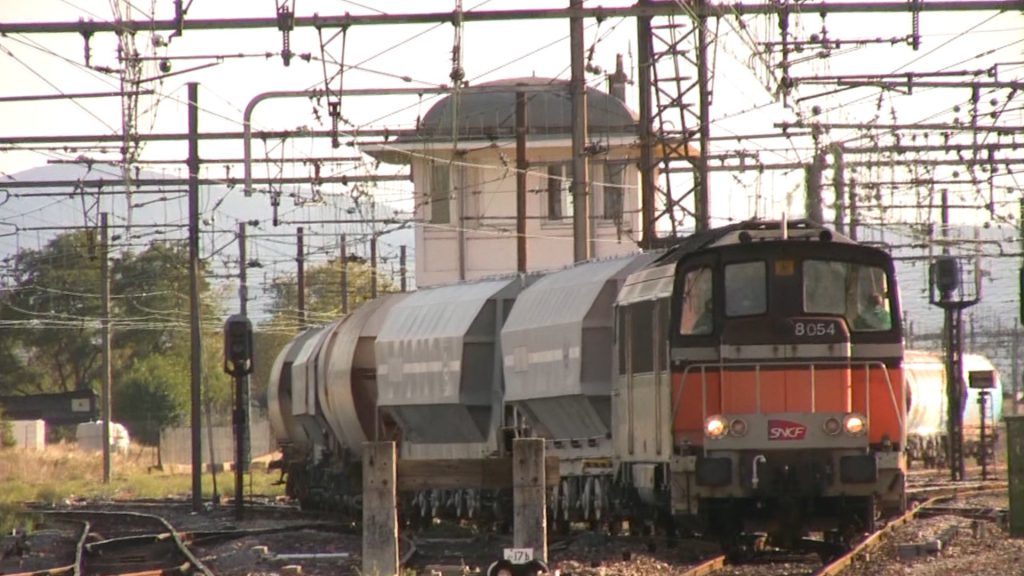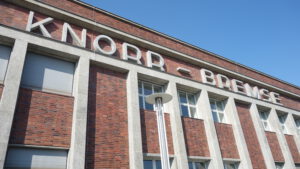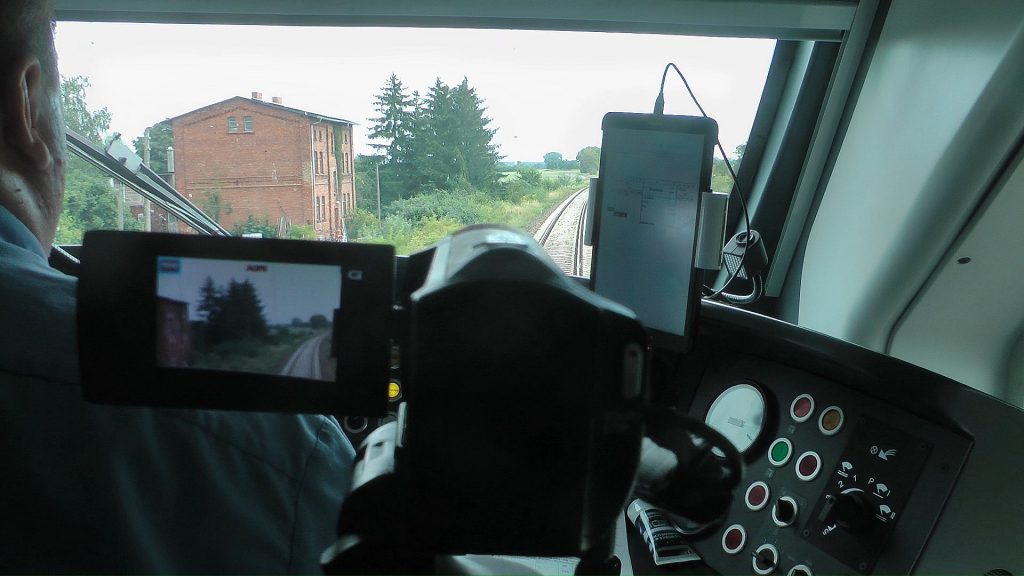
Laverny continued: “We must remember here that this disruption of services affects 30% of our traffic, expressed in tonne-kilometers transported, or 20% of our turnover and 10% of our workforce. The transfer of the 23 affected flows, including 21 related to combined transport, has begun. Traffic flows between Germany and Spain as well as a railway highway between Calais and Sète have already been transferred to other operators. This movement will accelerate with the next timetable change on December 10, 2023.”
GUN TO THE CHEST: EITHER SHRINK OR GIVE BACK SUBSIDIES
The dismantling of the once leading French freight transport company Fret SNCF is being carried out under the euphemistic term “discontinuity plan”. The drama is the result of controversial decisions by the French state. The rail freight transport market in France has been open to competition since 2006. An investigation has been ongoing in Brussels since the beginning of 2023 into alleged illegal aid from which Fret SNCF benefited between 2007 and 2019. In particular, it is about canceling their debts amounting to 5.3 billion euros. When the company was founded at the beginning of 2020 as part of the last railway reform, these were integrated into the debts of the SNCF group holding company. The EU considers this debt relief to be illegal and could demand the money back from Fret SNCF.

On May 23, 2023, French Transport Minister Clément Beaune defended the previous policy. Applying EU rules to the letter would mean simultaneously “torpedoing” Europe’s Green Deal plan and France’s Climate and Resilience Law, which envisages shifting freight transport from trucks to rail. Since the state is in difficult negotiations with Brussels, Beaune rejected a legal test of strength.
Beaune proposed the voluntary liquidation of the Fret SNCF freight division. A new company should be founded with a different name, which has no connection to Fret SNCF, but will continue to be public, i.e. majority controlled by SNCF. The financing round could also include a minority shareholder – preferably public, but also private. At the same time, he announced an increase in funding for freight transport.
POOR RAILWAY INFRASTRUCTURE…
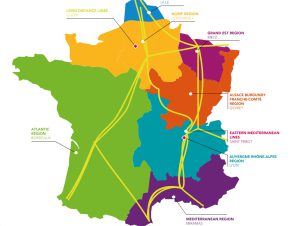
How did Fret SNCF’s poor financial results even come about? In September 2023, MPs discussed this with experts in a parliamentary investigative commission of the National Assembly. Guillaume Pepy, former CEO of SNCF, pointed to massive and chronic underinvestment in infrastructure. This quickly made Fret SNCF significantly less competitive in freight transport than road transport. The last aid plan for Fret SNCF, approved by Brussels in 2005, was too small in view of the emerging competition on the railways.
… “GRÉVICULTURE” AND LACK OF ECOLOGICAL TAX
Above all, the subsidiary has “lead feet” with high production costs, inadequate organisation, the lack of a customer culture and the harmful “Gréviculture”. The French word “grève” means strike. The French dictionary Larousse explains the term “gréviculture” as follows: “Pejorative: tendency to resort to strikes almost systematically during a social conflict and thus to establish a balance of power with employers.” In fact, in France, strike actions are primarily directed against public companies and authorities, so that SNCF and Fret SNCF suffered more from strikes than private competitors.
“EPIC” – WRONG ORGANISATIONAL FORM IN THE “LAZY REGULATORY STATE”
Interesting considerations were presented by Matthias Emmerich, former deputy general director of the SNCF freight transport division, in the investigative committee.“The first observation that struck me was that of a desperate financial situation despite the monopoly situation,” explained Emmerich.“I remember reading the individual financial statements in 2003 and having the strong feeling that I was joining a bankrupt company – essentially bankrupt due to the lack of a fully functioning corporate entity.The severely decimated balance sheet had negative equity and debts amounting to 1.6 billion euros.It goes without saying that, given such a financial situation and such a poor balance sheet, switching to the competition could only have been a lofty undertaking with extremely low chances of success.”
| In Emmerich’s opinion, a major reason for the poor situation of SNCF freight transport was its legal status. “Until the 2020 reform, Fret SNCF was a private division with social status of a public industrial and commercial company (EPIC), initially called SNCF and then SNCF Mobilités. Every activity that takes place within an EPIC benefits from the implicit support of the state… In my opinion, this is the origin of the inflation of a debt bubble over fifteen years worth five billion euros.” |
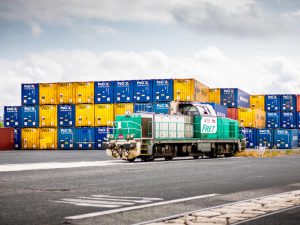
Mathias Emmerich is convinced:
“If Fret SNCF had been a public company, the question of its recapitalisation would have been raised before the market opened, and on several occasions. What we are witnessing now is just the culmination of fifteen years of suppression of this issue, obscured by the seemingly painless filling of the deficits in the SNCF freight transport division in an EPIC. Furthermore, this quiet solution made the regulatory state lazy.”
“EU’S ACTION IS HYPOCRATIC AND COUNTERPRODUCTIVE”
Emmerich is certain that Fret SNCF has made massive improvements and investments on its own in recent years.
Therefore, the EU’s criticism of the past should not affect today’s Fret SNCF.
Alain Krakovitch, former coordinator of the SNCF freight restructuring plan and general manager of Voyages SNCF, agreed: “The fact that we are being criticized for this today is seen as something very unfair… We have just described single-wagon transport, an activity in which onlywhich SNCF had positioned and which lost money.I still remember that it was not entirely clear at the time that the SNCF would spend several billion on this activity that it could not use elsewhere – especially on the development of passenger transport, which is much more profitable!We felt we were responsible by investing billions in an activity that was certainly unprofitable but that we knew was necessary for the country and from an environmental point of view.”
Will the plan presented by the government make it possible to put the new SNCF Fret back on a straight course?
The unions doubt it. Laurent Brun from CGT-Cheminots, the SNCF’s leading union, believes the EU’s actions are “hypocritical, unfair and counterproductive”. The government’s plan would deprive the SNCF freight business of “the most profitable trains,” he criticized.
“NEW FRET” AND “NEW MAINTENANCE” FROM 2025
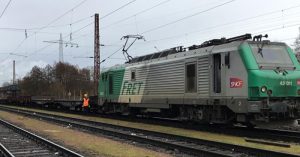
The plan presented by the French state in Brussels envisages a restructuring phase until July 2024. The formal establishment of a new company “New Fret” is scheduled to take place on January 1, 2025.This freight company has to take over “capacity management”, i.e. the trains with “isolated wagons” of different customers – in short, single-wagon traffic.These low-profit activities account for 80 percent of turnover and 70 percent of Fret SNCF traffic. Another company, New Maintenance, as the name suggests, has to take care of the maintenance of the rolling stock.This activity was not included in Fret SNCF before the rail reform introduced in 2020.A minority shareholder is expected to acquire a stake in these two new companies.These, together with the other subsidiaries Captrain, Naviland Cargo, VIIA and Forwardis, will be integrated into the rail freight transport division of the SNCF Group, Rail Logistics Europe.
Around 3,900 employees at Fret SNCF are to be automatically transferred to New Fret and 500 to New Maintenance. The professional future of around 450 to 480 employees who work in “dedicated trains”, i.e. block trains, remains to be clarified. The block train traffic is to be taken over by competing companies – if they want it, with the previous SNCF employees. But this perspective is fueling fears of reclassifications with potentially lower salaries than now.
| “It is a zone of turbulence,” summarises Gilles Dansart, editor-in-chief of the trade magazine Mobilettre.It cannot currently be ruled out that some of Fret SNCF’s existing freight contracts are of no interest to any of the competing companies.In such a case, the share of rail freight transport could even decrease in favor of truck transport – a risk that contradicts the government’s climate goals. |
The French government still wants to double the share of rail as a mode of transport compared to road and waterways by 2030.That’s why it wants to invest an additional 4 billion euros in infrastructure between 2023 and 2032.The industry is expected to receive 200 million euros in aid money annually by 2030.But it is not yet clear how this plan will be financed.
Hermann Schmidtendorf, editor-in-chief


